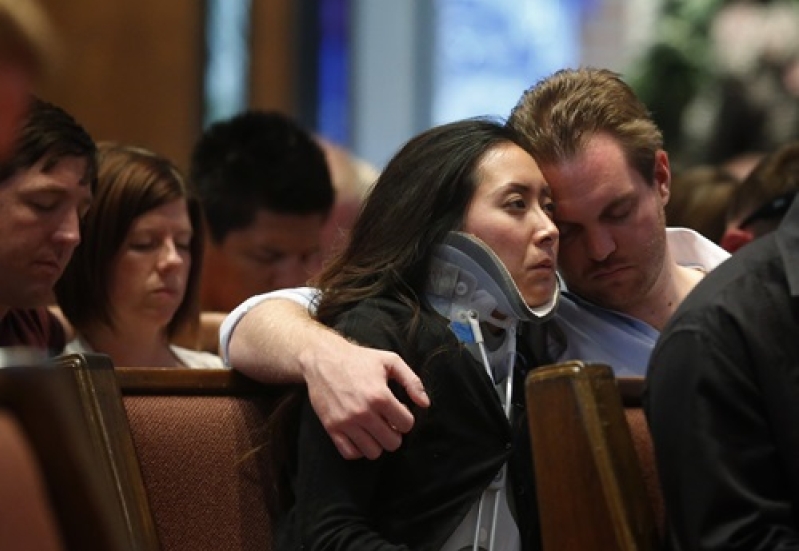
In May of this year, nearly fifty people died and numerous others were injured by tornadoes in Texas, Oklahoma, and Missouri. Thousands of homes sustained damage in these areas, as did secondary and elementary schools. Men, women, and children died during the storms, and such widespread destruction can be a stumbling block for both unbelievers and for those who believe in a loving and sovereign God. The many who lost homes and loved ones are in need of great solace, and Christ offers us this comfort.
Several prominent Christian leaders offer hope in light of such tragedy and loss. In an archived sermon, Pastor Mark Driscoll of Mars Hill Church assured his congregation that people won’t always understand why they suffer. He referenced the Old Testament book of Job, where Job doesn’t understand why God has allowed him to lose his health, his prosperity, and his beloved children. Says Driscoll, “there is some suffering about which God alone has an objective perspective, while the rest of us have only varying degrees of clarity.” He encouraged believers with 1 Corinthians 13:12 – “For now we see in a mirror dimly, but then face to face. Now I know in part; then I shall know fully, even as I have been fully known” (English Standard Version).
Although we may not understand why God, Who is sovereign over all things (see Psalm 115:3 and Job 42:2), would allow these tornadoes to cause such widespread damage and loss of life, we can be comforted by the knowledge of His character and in the hope of the Gospel. God is infinitely loving and wise (see Psalm 145:8, Romans 11:33-36, and Job 42:3). He does not allow His children to suffer needlessly, and promises that He will work all things for the good of those who love Him (see 2 Corinthians 1:8-10 and Romans 8:28); we can trust Him, even when we don’t understand why some things happen.
Nancy Leigh DeMoss, a Christian author and teacher for Revive Our Hearts ministry, exhorts believers to remember Jesus in the midst of tragedy – “remember that His humiliation turned into His exaltation. Remember that His suffering—His cross—is not the end of the story. And as you do, remember that your suffering and your cross are not the end of the story. Remember that there’s a resurrection beyond the cross.”
She reminds us that “He endured our pain and our suffering. He lived our life. He walked on our planet. He walked in our shoes. Remember His life … And then remember not just His suffering and His sacrifice, but as you remember Jesus Christ, remember His triumph over death, and as He triumphed over death, remember that He also triumphed over Satan and sin … He is risen, and as you think that your sufferings are perhaps, in some cases, going to take you under, that you may not be able to physically survive your sufferings—be they physical or financial, marital or relational, whatever the issue—remember that the resurrected Christ lives in you to give you hope. Because He has been raised from the dead, we too shall live with Him eternally.”
God’s Word gives us true comfort and hope. Rick Warren, whose son committed suicide earlier this year, encourages those who mourn to seek solace in the Lord. In May, he tweeted: “My secret source of strength: ‘You are my place of quiet retreat; I wait for your Word to renew me.’” (The Message, Psalm 119:114).
In all of our suffering, we must press into the Lord for healing and for hope. Isaiah 41:10 says, “fear not, for I am with you; be not dismayed, for I am your God; I will strengthen you, I will help you, I will uphold you with My righteous right hand.”






